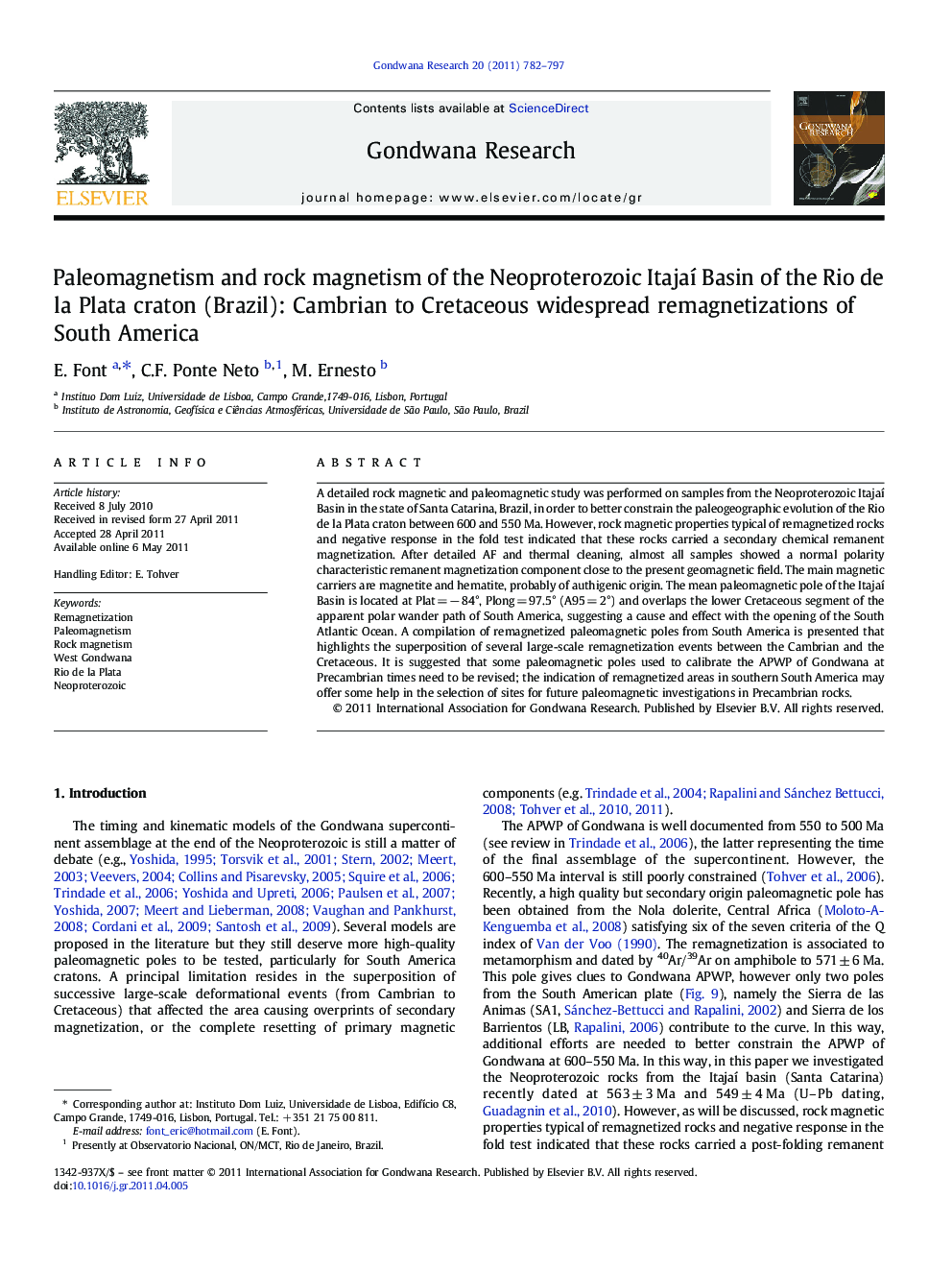| Article ID | Journal | Published Year | Pages | File Type |
|---|---|---|---|---|
| 4726861 | Gondwana Research | 2011 | 16 Pages |
A detailed rock magnetic and paleomagnetic study was performed on samples from the Neoproterozoic Itajaí Basin in the state of Santa Catarina, Brazil, in order to better constrain the paleogeographic evolution of the Rio de la Plata craton between 600 and 550 Ma. However, rock magnetic properties typical of remagnetized rocks and negative response in the fold test indicated that these rocks carried a secondary chemical remanent magnetization. After detailed AF and thermal cleaning, almost all samples showed a normal polarity characteristic remanent magnetization component close to the present geomagnetic field. The main magnetic carriers are magnetite and hematite, probably of authigenic origin. The mean paleomagnetic pole of the Itajaí Basin is located at Plat = − 84°, Plong = 97.5° (A95 = 2°) and overlaps the lower Cretaceous segment of the apparent polar wander path of South America, suggesting a cause and effect with the opening of the South Atlantic Ocean. A compilation of remagnetized paleomagnetic poles from South America is presented that highlights the superposition of several large-scale remagnetization events between the Cambrian and the Cretaceous. It is suggested that some paleomagnetic poles used to calibrate the APWP of Gondwana at Precambrian times need to be revised; the indication of remagnetized areas in southern South America may offer some help in the selection of sites for future paleomagnetic investigations in Precambrian rocks.
Graphical abstractFigure optionsDownload full-size imageDownload as PowerPoint slideResearch highlights► Remagnetization of the Neoproterozoic Itajaí Basin, Rio de la Plata craton, Brazil. ► The remagnetization is of a Cretaceous age and related to the South Atlantic opening. ► The Campo Alegre pole is subject to revision. ► We present a review of remagnetized areas in South America.
